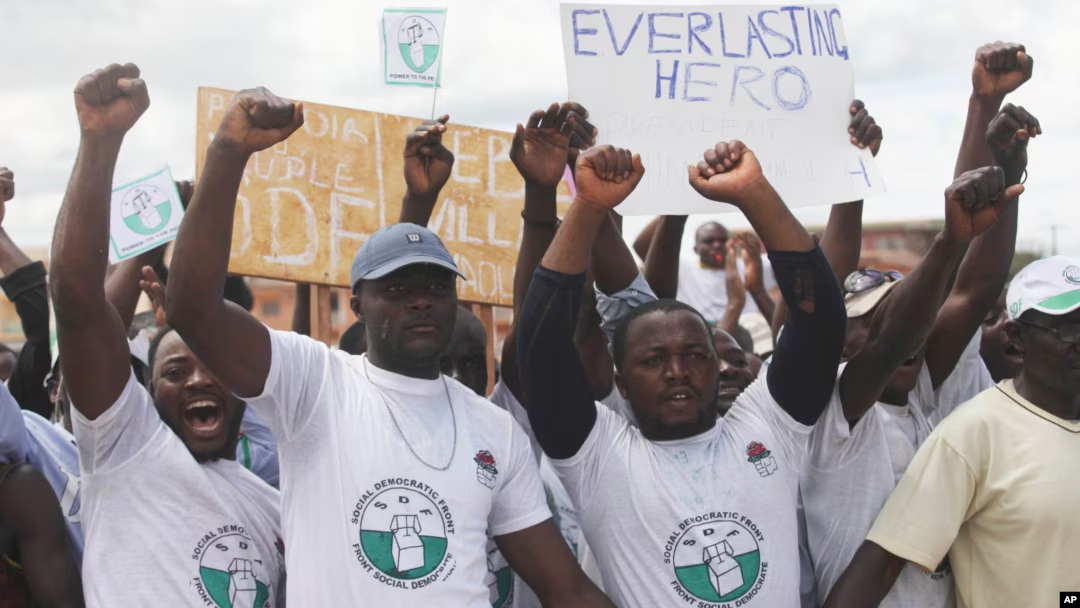
Cameroon’s Social Democratic Front (SDF) is facing an unprecedented internal crisis just two months before the presidential election on October 12, 2025.
A string of resignations from the party’s leadership and the unwavering stance of its candidate, Joshua Osih, against calls for a united opposition are deepening divisions within the once-dominant opposition party.
The crisis escalated over the weekend when a group of former SDF officials, known as the G27, announced their support for Bello Bouba Maigari of the National Union for Democracy and Progress (UNDP).
The 78-year-old former Minister of Tourism and Leisure has positioned himself as a presidential candidate capable of addressing the nation’s pressing issues.
“Our conviction is that the UNDP is the party whose political and economic program largely reflects the aspirations of the Cameroonian people, and those of Anglophones in particular,” the defectors stated in a press release.
The move comes after direct negotiations with Bello Bouba, which reportedly included commitments to grant a general amnesty for prisoners linked to the Anglophone crisis.
The group believes his leadership offers the most credible path to national reconciliation in the North West and South West regions.
Despite the defections, Joshua Osih remains steadfast. Speaking at a press conference, the SDF president insisted, “For me, this is a huge distraction.
I am the SDF candidate, the SDF chose me, I am in this election until the end.
I am in this election to win, whether there are 11 candidates facing me or just one candidate, I will win this election.”
Osih’s platform focuses on federalism as a solution to the Anglophone crisis, which he attributes to excessive centralization of power.
He proposes a three-year institutional transformation, beginning with a truth, peace, and reconciliation exercise, followed by a national dialogue culminating in a constitutional referendum to establish a federal system.
Political analysts warn that the SDF’s fragmentation may weaken the opposition’s chances of mounting an effective challenge to Paul Biya and reduce the party’s ability to represent Anglophone voters.
Once a formidable opposition force, the SDF now faces the dual challenge of internal cohesion and relevance at a critical electoral moment.



